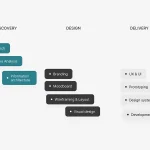
44968867 - office work and filling in tax returns close up
There are two types of tax saving mutual funds: the growth and dividend funds. These funds invest in equity-linked securities and can help you build wealth in the long run. Unlike stocks, however, they do not have any capital gains tax. This is an advantage that many people find attractive. However, you should consider your investment goals before investing. Here are some tips to consider when choosing a mutual fund. Here are some benefits of tax-saving mutual funds.
DSP BlackRock Tax Saving Fund: The DSP BlackRock Tax Saver Fund is an open-ended equity-linked savings scheme offered by DSP BlackRock Mutual Fund. It invests in a diversified portfolio of stocks and corporates. This tax-efficient fund offers a triple benefit to investors: wealth creation and tax deduction. The fund’s goal is to generate capital appreciation over the long term. It invests in companies that have a stable business model and strong financial performance. The fund was launched in 1996 by Rupesh Patel.
ELSS funds use the power of compounding to multiply your wealth. By investing steadily in an ELSS fund, you can accumulate wealth and reap the tax benefits. As a bonus, ELSS tax-saving mutual funds offer excellent returns, especially compared to other tax-saving investments. ELSS funds can be invested in with as little as Rs 1000. And there’s no upper limit on the amount of money you can invest in them.
Direct plan: Another way to invest in mutual funds is by going through an asset management company or a fund distributor. Direct plan investments are easy to make because you simply submit a check for the initial amount. However, if you’d like to invest in an AMC that offers SIPs, you can visit their website and fill out a form. If you wish, you can even invest online through cleartax invest. There are many different types of mutual fund investments, and you can choose one that suits your financial goals best.
Another type of tax saving mutual fund is an equity linked savings scheme (ELSS). These invest in equities and equity-related instruments. Because the tax benefits from these investments are tax-deductible, they are an excellent choice for investors with regular incomes. However, you should keep in mind that equity-linked savings schemes require a 3 year lock-in period. These funds offer tax-deduction benefits up to 30%. You will also benefit from rupee cost averaging if you invest in an ELSS every month.
ELSS funds are the best option for investors who are seeking the highest returns without taking on too much risk. ELSS funds generally invest over 80 percent of their assets in equity-related instruments. While the risk of ELSS investments is high, the lock-in period is short. This means that ELSS funds are best suited for risk-averse investors who have the time to invest. So, you can save up to 46,800 in taxes if you invest in an ELSS fund.






